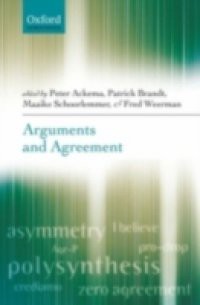This book brings together new work by leading syntactic theorists from the USA and Europe on a central aspect of syntactic and morphological theory: it explores the role of agreement morphology in the morphosyntactic realization of a verb's arguments. The authors examine the differences and parallels between nonconfigurational, pronominal- agreement languages; configurational languages which allow pronoun drop (for example, "Is coming" for "He is coming"); languagesthat allow pronoun drop in particular constructions only; and languages which always require overt syntactic determiner phrases as arguments. The book considers whether the morphological properties of agreement play a role in determining which of these types a language belongs to and how farlanguages differ with respect to the argumental status of their agreement and syntactic determiner phrases. The authors explore these and related issues and problems in the context of a wide range of languages. Their book will interest linguists at graduate level and above concerned with morphosyntactic theory, linguistic typology, and the interactions of syntax and morphology in different languages.

